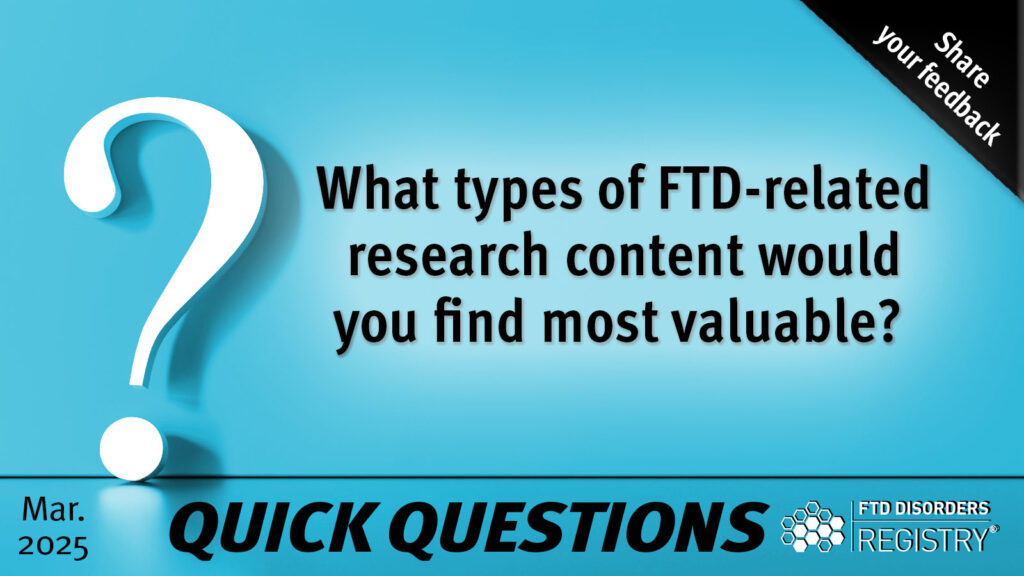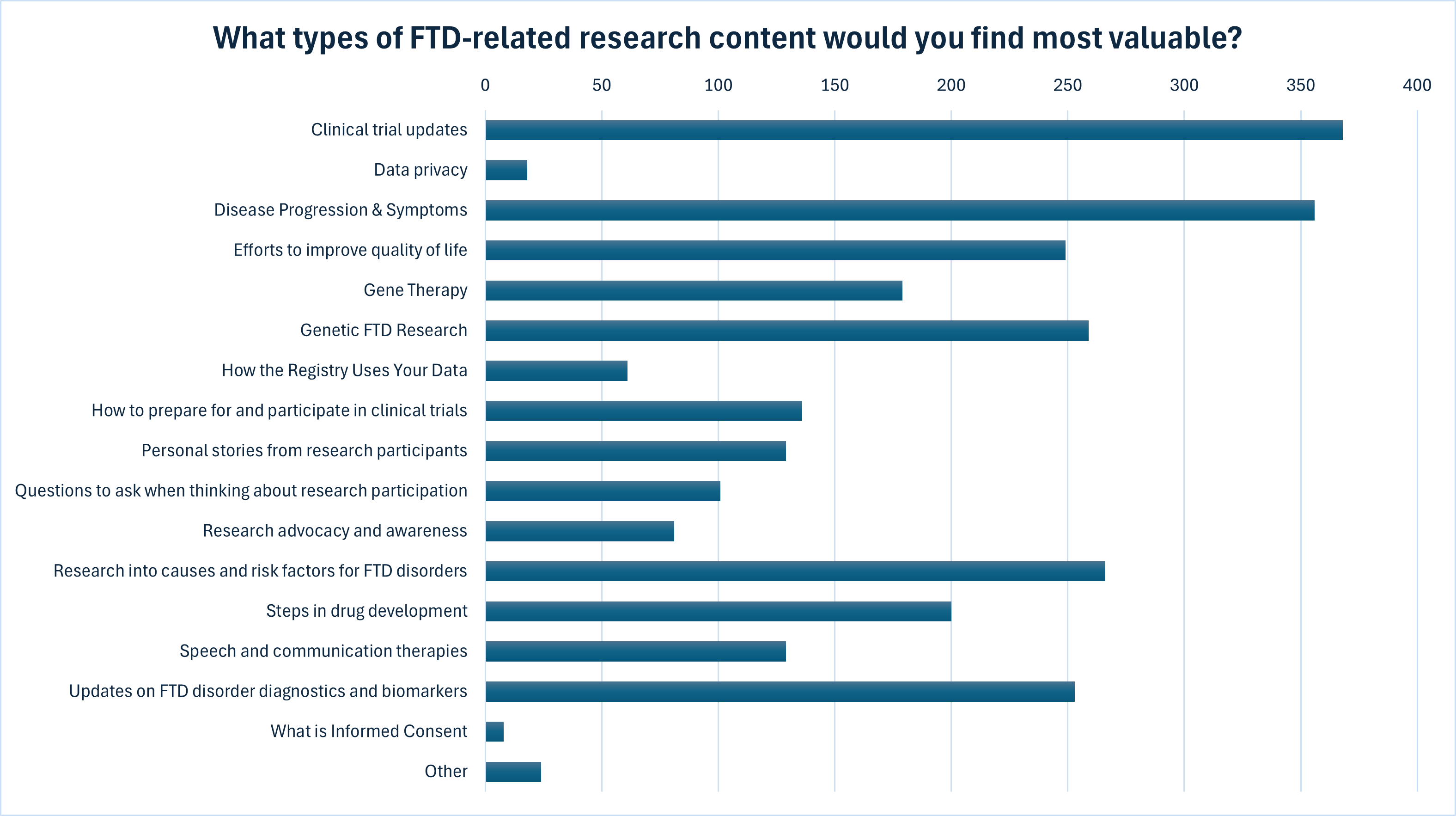PRESS & NEWS
Quick Question March 2025 Result:

576 people answered the FTD Disorders Registry’s March Quick Question where we asked about what types of FTD-related research content respondents would find most valuable. The information will be used to help develop new content for our Registry dashboard, website, and printed materials.
576 people answered the FTD Disorders Registry’s March Quick Question where we asked about what types of FTD-related research content respondents would find most valuable. The information will be used to help develop new content for our Registry dashboard, website, and printed materials.

The two highest scoring topics were clinical trial updates (368 respondents) and information on disease progression and symptoms (356 respondents). Other topics that ranked highly were efforts to improve quality of life (249 respondents), gene therapy (179 respondents), genetic FTD research (259 respondents), research into causes and risk factors for FTD disorders (266 respondents), steps in drug development (200 respondents) and updates on FTD disorder diagnostics and biomarkers (253 respondents).
Demographics
Spouses answering on behalf of a person diagnosed with an FTD disorder were the largest category of respondents (36%), We also received a large number of responses from people diagnosed with an FTD disorder answering for themselves (21%), biological family members answering for themselves (17%), biological family members answering on behalf of an FTD diagnosed person(12%), and spouses answering for themselves (8%).

We received input on this Quick Question from all stages of the FTD journey. The largest group were those in the middle stages of FTD (36%), but we also received input from those whose FTD-diagnosed loved one had already passed away (30%), those in the late-stage of FTD (17%), and those newly diagnosed (16%).
The majority of respondents to this Quick Question were female (66%). 32% were male. Eight people did not identify their gender. Answers came from around world with respondents reporting in from 17 countries, 44 states and two U.S. territories.
Together we can find a cure for ftd
The FTD Disorders Registry is a powerful tool in the movement to create therapies and find a cure. Together we can help change the course of the disease and put an end to FTD.
Your privacy is important! We promise to protect it. We will not share your contact information.



